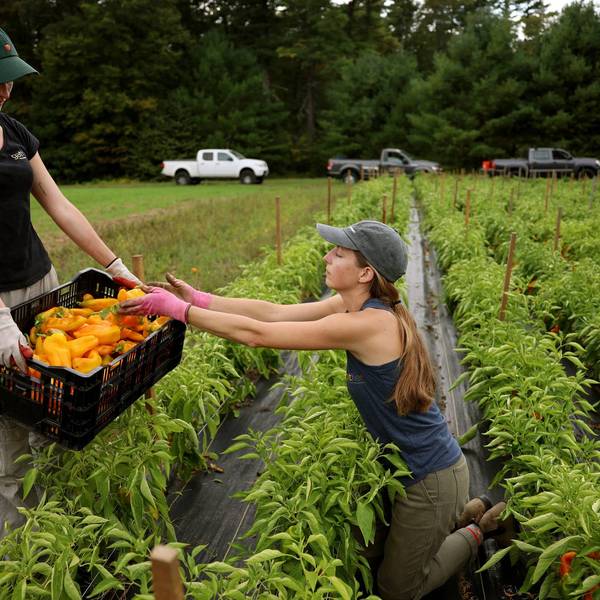Few workers play a more intimate role in our lives than the farmworkers who plant, pick, package, and ship the food we put on our tables. But unfortunately, few are more vulnerable.
As the climate crisis accelerates, their already hard jobs are getting deadlier.
Ever since the mid-20th century, when migrant braceros from Mexico kept food on U.S. tables while Americans were off fighting in World War II, farmworkers in this country have faced systemic injustices and abuse.
They're no less vital now--in 2020, they were declared essential to ensure families continued to be fed during a pandemic that forced others to stay home. But many continue to face systemic exploitation on account of their poverty or immigration status.
There are between 2.5 and 3 million agricultural workers in the United States. Migrant farmworkers account for an estimated 75 percent of these, and 50 percent of migrant farmworkers are undocumented. Many live in this country at risk of deportation, in substandard housing conditions, and in extreme poverty.
And unfortunately, as the climate crisis accelerates, their already hard jobs are getting deadlier.
Because most farmworkers lack basic working protections and are paid "per piece"--that is, for how much they harvest--they're often forced to choose between going without pay and working long hours through dangerous conditions. In recent years, they've had to work through heat waves, extreme drought, and even wildfires.
In 2021, the United States experienced the hottest summer on record, and some farmworkers died because of these unpredictable circumstances. Heat is now their leading cause of death on the job--in fact, farmworkers are 20 times more likely than other workers to die from heat-related illnesses.
Even one death on the job is too many. We need real labor standards to mitigate these gruesome conditions.
Farmworker deaths can be prevented by implementing federal heat safety standards and actually enforcing them--a call many advocacy groups have made. Employers should be required to prevent heat-related illnesses by providing clean drinking water, shade, and rest periods. And they should be held accountable for deaths caused by dangerous working conditions.
But protecting farmworkers on the job also means addressing the issues that make them so vulnerable in the first place.
Protecting farmworkers on the job also means addressing the issues that make them so vulnerable in the first place.
The piece-rate wage forces workers to put in 10- or 12-hour workdays and still leaves many food-insecure and impoverished. And due to their immigration status, farmworkers are often unable to protest dangerous working conditions or poor wages, incentivizing employers to exploit them further.
The complete marginalization of farmworkers is due to decisions made by our policymakers, as well as an exploitative food system that profits from their misfortunes. But these decisions can be changed.
Providing a legal and just pathway to citizenship would ensure that immigrant farmworkers have the opportunity to improve their living and working conditions. Labor laws that ensure workers are fairly paid regardless of their immigration status could greatly mitigate the risks many are forced to take.
And real action to address our climate crisis and protect our environment would have the added benefit of protecting our most essential workers.
The farmworkers who feed us are on the frontlines of climate change, poverty, and our broken immigration system. They shouldn't be treated as sacrificial or replaceable--especially when they're nothing short of essential. We must support their causes and demand justice.
This Farmworker Awareness Week, it's critical that we continue to recognize the vital role farmworkers play to sustain our country's entire food system, their proud history of union mobilizing and organizing, and the need to respect their humanity.
From Cesar Chavez's day to our own, "the struggle continues"--la lucha sigue!




